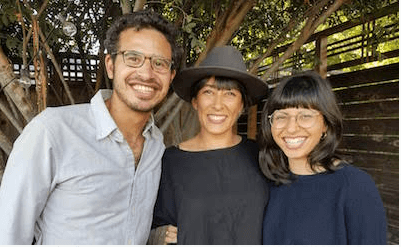
Whether Baby Boomer, Generation X, Millennial or Generation Z, we are all reckoning with a tech-filled world. Right now the screen seems to reign supreme, serving as news source, workplace, community center and movie theater all rolled into one.
But as we’re discovering more and more, with this handheld Pandora’s Box comes tech-induced anxiety and depression. With so many people facedown in screens, is plummeting mental health just a fact of 21st-century life?
Allie Stark, Brooke Dean and Adam Smiley Poslowsky are part of a new generation of leaders who recognize that thriving in the digital age does not mean being plugged in 24/7. Bringing together their experience as authors, educators, coaches and serious advocates of DIY fun, they offer a Digital Detox workshop for people to engage deeply in community, creativity and mindfulness while reflecting on and reshaping their technology habits.
“Although they have their time and place, screens can be pocket-sized promoters of comparison, loneliness, isolation, self-limiting beliefs, FOMO, depression and anxiety,” says Allie Stark. “With the world at our fingertips we are constantly being exposed to edited versions of life. We are regularly pulled out of our present experience of the here-and-now and into a world that an individual or an organization/network has created to capture and distract our attention. By unplugging from our devices — even for a short period of time — we give our brains and bodies a chance to reboot and relax, and an opportunity to return to their most natural state: one of regeneration and healing.”
Digital Detox is a mindfulness-based and psychologically oriented workshop specifically designed to give people a fresh perspective to implement in their everyday lives. “By taking away the noise from the outside world we force ourselves into finding deeper meaning in the little things and connecting to nature, our personal health, our work lives and our home lives,” says Brooke Dean, who along with her late husband Levi Felix co-founded Digital Detox. “The workshop tends to surface our dreams and aspirations and realigns us with what is truly important.”
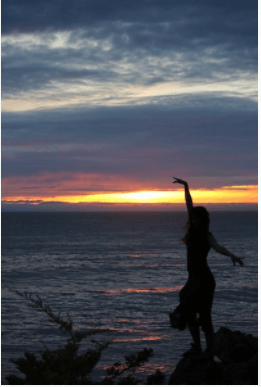
2019 will be Digital Detox’s second year at Esalen — a place where unplugging has been the norm for decades. Partially due to its remote location where cell signals are fleeting, and partially by design, Esalen is more than conducive to re-visioning choices and breaking old tech habits. “Esalen is the perfect place for a Digital Detox,” says Adam Smiley Poslowsky, Digital Detox co-leader, Millennial workplace expert and author of The Breakthrough Speaker and The Quarter-Life Breakthrough. “Participants have said the experience helped them find their power again, realize how much technology can contribute to anxiety and remember the power of human connection.”
It may be tempting to think of unhealthy tech habits as a “Millennial Problem,” especially for those who grew up pre-internet. But with more than half of all Americans using social media, and research pointing to social media dependency as a factor in rising rates of depression, anxiety and even suicide, rethinking tech use is a social issue we all must face. A digital detox can help everyone, regardless of age.
“We hear a lot about the ‘Selfie Generation,’ and how all Millennials do is use Instagram,” Adam says. “While our generation, like others, is certainly spending too much time on digital devices, the truth is that a lot of Millennials are speaking out about the importance of in-person connection and leading the resurgence of community gatherings and live experiences. We are all trying to reclaim human connection in the face of pressure and manipulation from technology companies to always be staring at our phones. Having an intergenerational group of participants in our workshop reminds us what actually matters: putting down our devices, turning off our screens and remembering the power of in-person human connection.”
In fact, you can start right now with a few tips adapted from the Digital Detox Field Guide, created by Brooke and Levi:
Learn More about Digital Detox: Unplug and Reimagine Your Life.
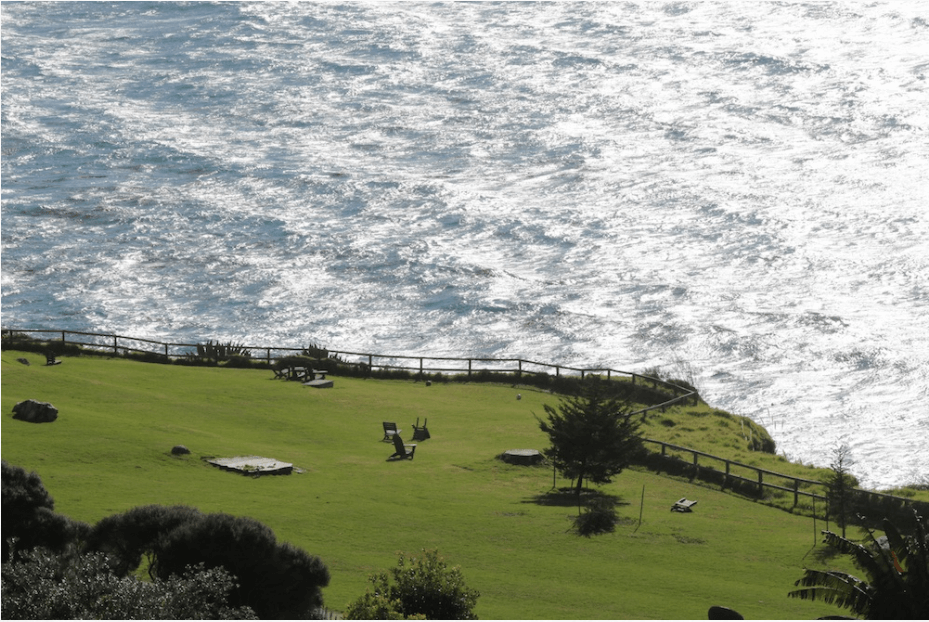
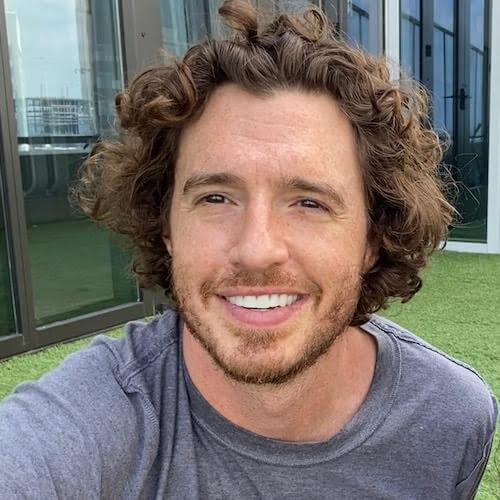
“Remembering to be as self compassionate as I can and praying to the divine that we're all a part of.”
–Aaron
“Prayer, reading, meditation, walking.”
–Karen
“Erratically — which is an ongoing stream of practice to find peace.”
–Charles
“Try on a daily basis to be kind to myself and to realize that making mistakes is a part of the human condition. Learning from our mistakes is a journey. But it starts with compassion and caring. First for oneself.”
–Steve
“Physically: aerobic exercise, volleyball, ice hockey, cycling, sailing. Emotionally: unfortunately I have to work to ‘not care’ about people or situations which may end painfully. Along the lines of ‘attachment is the source of suffering’, so best to avoid it or limit its scope. Sad though because it could also be the source of great joy. Is it worth the risk?“
–Rainer
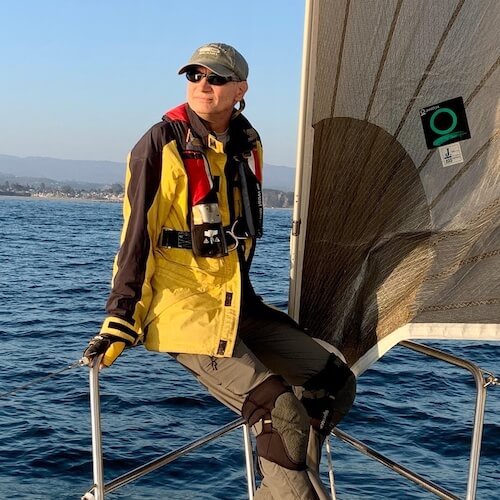

“It's time for my heart to be nurtured on one level yet contained on another. To go easy on me and to allow my feelings to be validated, not judged harshly. On the other hand, to let the heart rule with equanimity and not lead the mind and body around like a master.”
–Suzanne
“I spend time thinking of everything I am grateful for, and I try to develop my ability to express compassion for myself and others without reservation. I take time to do the things I need to do to keep myself healthy and happy. This includes taking experiential workshops, fostering relationships, and participating within groups which have a similar interest to become a more compassionate and fulfilled being.“
–Peter
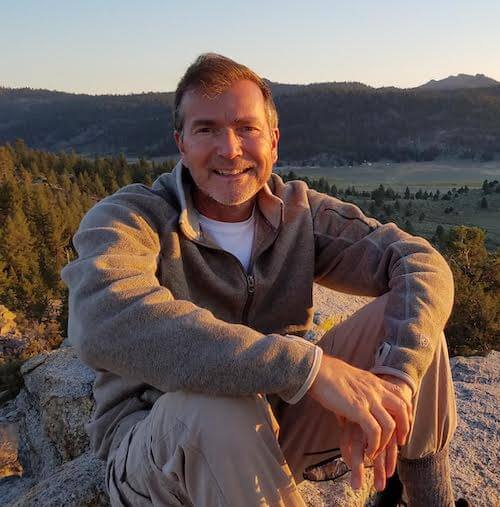
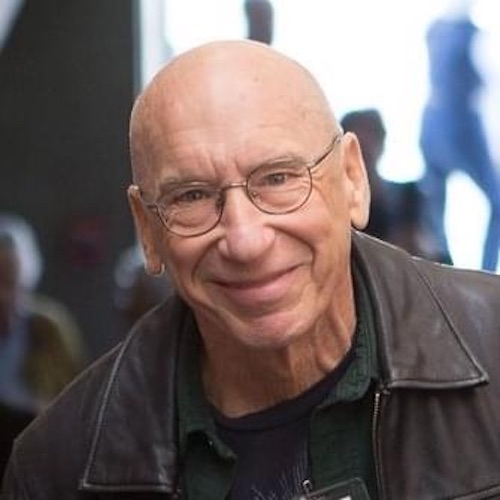
“Self-forgiveness for my own judgments. And oh yeah, coming to Esalen.”
–David B.
“Hmm, this is a tough one! I guess I take care of my heart through fostering relationships with people I feel connected to. Spending quality time with them (whether we're on the phone, through messages/letters, on Zoom, or in-person). Being there for them, listening to them, sharing what's going on with me, my struggles and my successes... like we do in the Esalen weekly Friends of Esalen Zoom sessions!”
–Lori

“I remind myself in many ways of the fact that " Love is all there is!" LOVE is the prize and this one precious life is the stage we get to learn our lessons. I get out into nature, hike, camp, river kayak, fly fish, garden, I create, I dance (not enough!), and I remain grateful for each day, each breath, each moment. Being in the moment, awake, and remembering the gift of life and my feeling of gratitude for all of creation.”
–Steven
“My physical heart by limiting stress and eating a heart-healthy diet. My emotional heart by staying in love with the world and by knowing that all disappointment and loss will pass.“
–David Z.
Today, September 29, is World Heart Day. Strike up a conversation with your own heart and as you feel comfortable, encourage others to do the same. As part of our own transformations and self-care, we sometimes ask for others to illuminate and enliven our hearts or speak our love language.
What if we could do this for ourselves too, even if just for today… or to start a heart practice, forever?

Whether Baby Boomer, Generation X, Millennial or Generation Z, we are all reckoning with a tech-filled world. Right now the screen seems to reign supreme, serving as news source, workplace, community center and movie theater all rolled into one.
But as we’re discovering more and more, with this handheld Pandora’s Box comes tech-induced anxiety and depression. With so many people facedown in screens, is plummeting mental health just a fact of 21st-century life?
Allie Stark, Brooke Dean and Adam Smiley Poslowsky are part of a new generation of leaders who recognize that thriving in the digital age does not mean being plugged in 24/7. Bringing together their experience as authors, educators, coaches and serious advocates of DIY fun, they offer a Digital Detox workshop for people to engage deeply in community, creativity and mindfulness while reflecting on and reshaping their technology habits.
“Although they have their time and place, screens can be pocket-sized promoters of comparison, loneliness, isolation, self-limiting beliefs, FOMO, depression and anxiety,” says Allie Stark. “With the world at our fingertips we are constantly being exposed to edited versions of life. We are regularly pulled out of our present experience of the here-and-now and into a world that an individual or an organization/network has created to capture and distract our attention. By unplugging from our devices — even for a short period of time — we give our brains and bodies a chance to reboot and relax, and an opportunity to return to their most natural state: one of regeneration and healing.”
Digital Detox is a mindfulness-based and psychologically oriented workshop specifically designed to give people a fresh perspective to implement in their everyday lives. “By taking away the noise from the outside world we force ourselves into finding deeper meaning in the little things and connecting to nature, our personal health, our work lives and our home lives,” says Brooke Dean, who along with her late husband Levi Felix co-founded Digital Detox. “The workshop tends to surface our dreams and aspirations and realigns us with what is truly important.”

2019 will be Digital Detox’s second year at Esalen — a place where unplugging has been the norm for decades. Partially due to its remote location where cell signals are fleeting, and partially by design, Esalen is more than conducive to re-visioning choices and breaking old tech habits. “Esalen is the perfect place for a Digital Detox,” says Adam Smiley Poslowsky, Digital Detox co-leader, Millennial workplace expert and author of The Breakthrough Speaker and The Quarter-Life Breakthrough. “Participants have said the experience helped them find their power again, realize how much technology can contribute to anxiety and remember the power of human connection.”
It may be tempting to think of unhealthy tech habits as a “Millennial Problem,” especially for those who grew up pre-internet. But with more than half of all Americans using social media, and research pointing to social media dependency as a factor in rising rates of depression, anxiety and even suicide, rethinking tech use is a social issue we all must face. A digital detox can help everyone, regardless of age.
“We hear a lot about the ‘Selfie Generation,’ and how all Millennials do is use Instagram,” Adam says. “While our generation, like others, is certainly spending too much time on digital devices, the truth is that a lot of Millennials are speaking out about the importance of in-person connection and leading the resurgence of community gatherings and live experiences. We are all trying to reclaim human connection in the face of pressure and manipulation from technology companies to always be staring at our phones. Having an intergenerational group of participants in our workshop reminds us what actually matters: putting down our devices, turning off our screens and remembering the power of in-person human connection.”
In fact, you can start right now with a few tips adapted from the Digital Detox Field Guide, created by Brooke and Levi:
Learn More about Digital Detox: Unplug and Reimagine Your Life.


“Remembering to be as self compassionate as I can and praying to the divine that we're all a part of.”
–Aaron
“Prayer, reading, meditation, walking.”
–Karen
“Erratically — which is an ongoing stream of practice to find peace.”
–Charles
“Try on a daily basis to be kind to myself and to realize that making mistakes is a part of the human condition. Learning from our mistakes is a journey. But it starts with compassion and caring. First for oneself.”
–Steve
“Physically: aerobic exercise, volleyball, ice hockey, cycling, sailing. Emotionally: unfortunately I have to work to ‘not care’ about people or situations which may end painfully. Along the lines of ‘attachment is the source of suffering’, so best to avoid it or limit its scope. Sad though because it could also be the source of great joy. Is it worth the risk?“
–Rainer


“It's time for my heart to be nurtured on one level yet contained on another. To go easy on me and to allow my feelings to be validated, not judged harshly. On the other hand, to let the heart rule with equanimity and not lead the mind and body around like a master.”
–Suzanne
“I spend time thinking of everything I am grateful for, and I try to develop my ability to express compassion for myself and others without reservation. I take time to do the things I need to do to keep myself healthy and happy. This includes taking experiential workshops, fostering relationships, and participating within groups which have a similar interest to become a more compassionate and fulfilled being.“
–Peter


“Self-forgiveness for my own judgments. And oh yeah, coming to Esalen.”
–David B.
“Hmm, this is a tough one! I guess I take care of my heart through fostering relationships with people I feel connected to. Spending quality time with them (whether we're on the phone, through messages/letters, on Zoom, or in-person). Being there for them, listening to them, sharing what's going on with me, my struggles and my successes... like we do in the Esalen weekly Friends of Esalen Zoom sessions!”
–Lori

“I remind myself in many ways of the fact that " Love is all there is!" LOVE is the prize and this one precious life is the stage we get to learn our lessons. I get out into nature, hike, camp, river kayak, fly fish, garden, I create, I dance (not enough!), and I remain grateful for each day, each breath, each moment. Being in the moment, awake, and remembering the gift of life and my feeling of gratitude for all of creation.”
–Steven
“My physical heart by limiting stress and eating a heart-healthy diet. My emotional heart by staying in love with the world and by knowing that all disappointment and loss will pass.“
–David Z.
Today, September 29, is World Heart Day. Strike up a conversation with your own heart and as you feel comfortable, encourage others to do the same. As part of our own transformations and self-care, we sometimes ask for others to illuminate and enliven our hearts or speak our love language.
What if we could do this for ourselves too, even if just for today… or to start a heart practice, forever?

Whether Baby Boomer, Generation X, Millennial or Generation Z, we are all reckoning with a tech-filled world. Right now the screen seems to reign supreme, serving as news source, workplace, community center and movie theater all rolled into one.
But as we’re discovering more and more, with this handheld Pandora’s Box comes tech-induced anxiety and depression. With so many people facedown in screens, is plummeting mental health just a fact of 21st-century life?
Allie Stark, Brooke Dean and Adam Smiley Poslowsky are part of a new generation of leaders who recognize that thriving in the digital age does not mean being plugged in 24/7. Bringing together their experience as authors, educators, coaches and serious advocates of DIY fun, they offer a Digital Detox workshop for people to engage deeply in community, creativity and mindfulness while reflecting on and reshaping their technology habits.
“Although they have their time and place, screens can be pocket-sized promoters of comparison, loneliness, isolation, self-limiting beliefs, FOMO, depression and anxiety,” says Allie Stark. “With the world at our fingertips we are constantly being exposed to edited versions of life. We are regularly pulled out of our present experience of the here-and-now and into a world that an individual or an organization/network has created to capture and distract our attention. By unplugging from our devices — even for a short period of time — we give our brains and bodies a chance to reboot and relax, and an opportunity to return to their most natural state: one of regeneration and healing.”
Digital Detox is a mindfulness-based and psychologically oriented workshop specifically designed to give people a fresh perspective to implement in their everyday lives. “By taking away the noise from the outside world we force ourselves into finding deeper meaning in the little things and connecting to nature, our personal health, our work lives and our home lives,” says Brooke Dean, who along with her late husband Levi Felix co-founded Digital Detox. “The workshop tends to surface our dreams and aspirations and realigns us with what is truly important.”

2019 will be Digital Detox’s second year at Esalen — a place where unplugging has been the norm for decades. Partially due to its remote location where cell signals are fleeting, and partially by design, Esalen is more than conducive to re-visioning choices and breaking old tech habits. “Esalen is the perfect place for a Digital Detox,” says Adam Smiley Poslowsky, Digital Detox co-leader, Millennial workplace expert and author of The Breakthrough Speaker and The Quarter-Life Breakthrough. “Participants have said the experience helped them find their power again, realize how much technology can contribute to anxiety and remember the power of human connection.”
It may be tempting to think of unhealthy tech habits as a “Millennial Problem,” especially for those who grew up pre-internet. But with more than half of all Americans using social media, and research pointing to social media dependency as a factor in rising rates of depression, anxiety and even suicide, rethinking tech use is a social issue we all must face. A digital detox can help everyone, regardless of age.
“We hear a lot about the ‘Selfie Generation,’ and how all Millennials do is use Instagram,” Adam says. “While our generation, like others, is certainly spending too much time on digital devices, the truth is that a lot of Millennials are speaking out about the importance of in-person connection and leading the resurgence of community gatherings and live experiences. We are all trying to reclaim human connection in the face of pressure and manipulation from technology companies to always be staring at our phones. Having an intergenerational group of participants in our workshop reminds us what actually matters: putting down our devices, turning off our screens and remembering the power of in-person human connection.”
In fact, you can start right now with a few tips adapted from the Digital Detox Field Guide, created by Brooke and Levi:
Learn More about Digital Detox: Unplug and Reimagine Your Life.


“Remembering to be as self compassionate as I can and praying to the divine that we're all a part of.”
–Aaron
“Prayer, reading, meditation, walking.”
–Karen
“Erratically — which is an ongoing stream of practice to find peace.”
–Charles
“Try on a daily basis to be kind to myself and to realize that making mistakes is a part of the human condition. Learning from our mistakes is a journey. But it starts with compassion and caring. First for oneself.”
–Steve
“Physically: aerobic exercise, volleyball, ice hockey, cycling, sailing. Emotionally: unfortunately I have to work to ‘not care’ about people or situations which may end painfully. Along the lines of ‘attachment is the source of suffering’, so best to avoid it or limit its scope. Sad though because it could also be the source of great joy. Is it worth the risk?“
–Rainer


“It's time for my heart to be nurtured on one level yet contained on another. To go easy on me and to allow my feelings to be validated, not judged harshly. On the other hand, to let the heart rule with equanimity and not lead the mind and body around like a master.”
–Suzanne
“I spend time thinking of everything I am grateful for, and I try to develop my ability to express compassion for myself and others without reservation. I take time to do the things I need to do to keep myself healthy and happy. This includes taking experiential workshops, fostering relationships, and participating within groups which have a similar interest to become a more compassionate and fulfilled being.“
–Peter


“Self-forgiveness for my own judgments. And oh yeah, coming to Esalen.”
–David B.
“Hmm, this is a tough one! I guess I take care of my heart through fostering relationships with people I feel connected to. Spending quality time with them (whether we're on the phone, through messages/letters, on Zoom, or in-person). Being there for them, listening to them, sharing what's going on with me, my struggles and my successes... like we do in the Esalen weekly Friends of Esalen Zoom sessions!”
–Lori

“I remind myself in many ways of the fact that " Love is all there is!" LOVE is the prize and this one precious life is the stage we get to learn our lessons. I get out into nature, hike, camp, river kayak, fly fish, garden, I create, I dance (not enough!), and I remain grateful for each day, each breath, each moment. Being in the moment, awake, and remembering the gift of life and my feeling of gratitude for all of creation.”
–Steven
“My physical heart by limiting stress and eating a heart-healthy diet. My emotional heart by staying in love with the world and by knowing that all disappointment and loss will pass.“
–David Z.
Today, September 29, is World Heart Day. Strike up a conversation with your own heart and as you feel comfortable, encourage others to do the same. As part of our own transformations and self-care, we sometimes ask for others to illuminate and enliven our hearts or speak our love language.
What if we could do this for ourselves too, even if just for today… or to start a heart practice, forever?